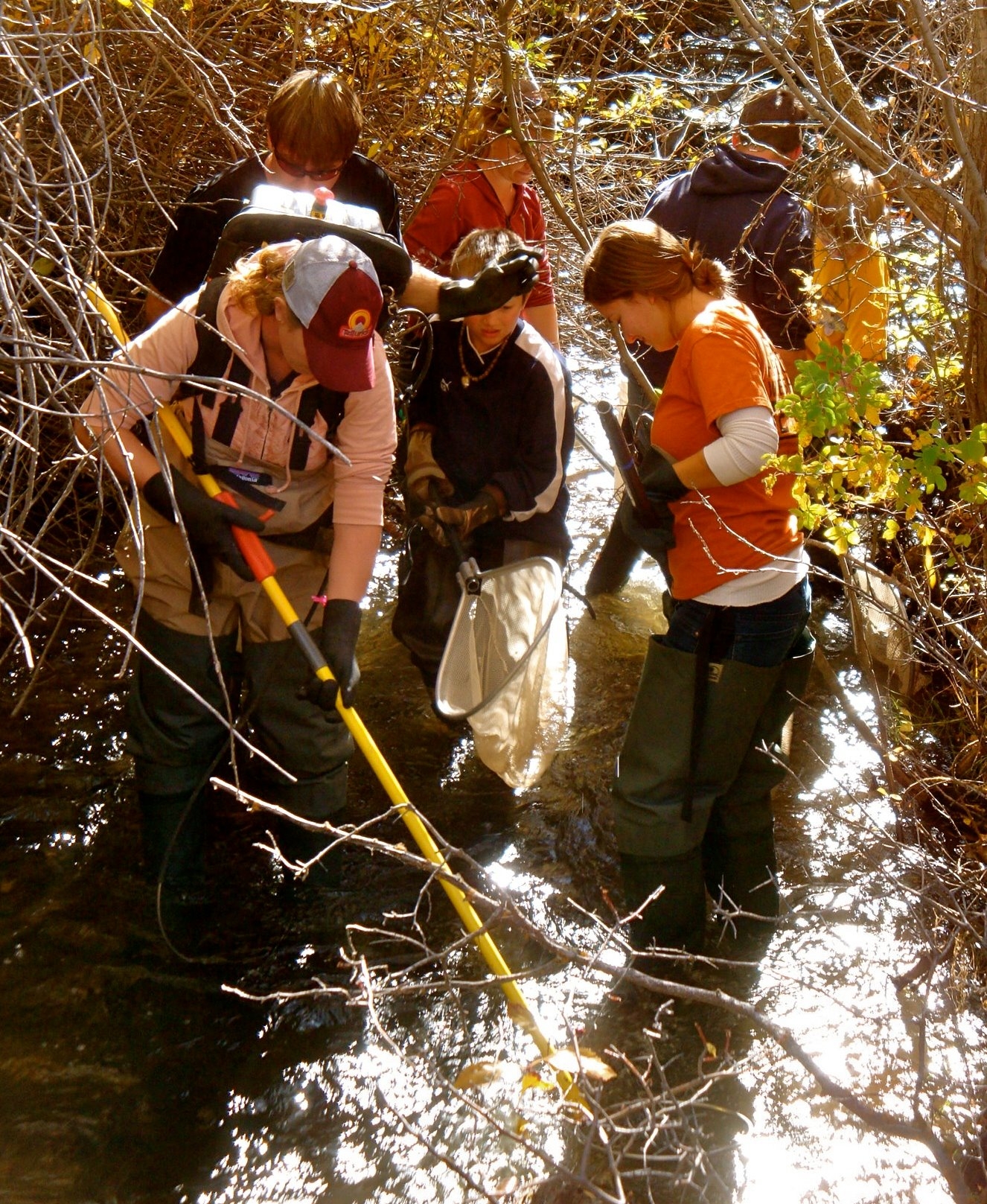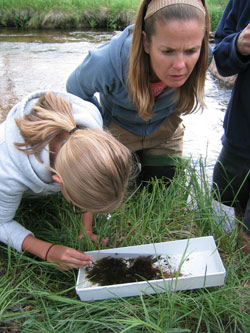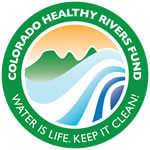|
|
Colorado River Watch Statistics
-
Since 1989, River Watch has worked with volunteers around the state, coordinating volunteer efforts to collect quality water ecosystem data that can be used to monitor and regulate Colorado's rivers and streams. River Watch has worked with over 70,000 individuals at 3,000 stations and at more than 400 rivers and streams throughout the state. Currently, River Watch works with over 135 active monitoring teams.

-
River Watch's volunteers are students, teachers, individuals, and watershed organizations. Currently, between 75-80% of all River Watch groups are student groups, where teachers integrate the River Watch program into their science curriculums.
-
River Watch collects more stream data than any other entity in Colorado. It is the largest volunteer-driven water quality program in the United States. River Watch is also the only entity in the state that tests chemical, physical, and biological indicators of health in all watersheds in Colorado.
-
River Watch volunteers analyze water samples for hardness, alkalinity, dissolved oxygen, pH, and temperature. Volunteers also record certain physical characteristics of the riparian zone, such as discharge, flow, and adjacent vegetation. Additionally, volunteers collect samples which a professional lab analyzes for 13 metals, 7 nutrients, and macro-invertebrates.
-
River Watch has a strong Quality Assurance and Quality Controls (QA/QC) Program. Our volunteers collect a field and lab QA/QC sample at a rate of 20%, compared the national average of 10%. This program insures that the data is accurate and reproducible.
-
Data collected from the River Wat
 ch program is used by the Colorado Department of Public Health and Environment to regulate and enhance Colorado's rivers and streams. River Watch's data is also used by the Environmental Protection Agency for enforcement of the Clean Water Act and by the Colorado Water Quality Control Division, which routinely calls upon River Watch data for its rule making hearings and in the triennial review of standards. ch program is used by the Colorado Department of Public Health and Environment to regulate and enhance Colorado's rivers and streams. River Watch's data is also used by the Environmental Protection Agency for enforcement of the Clean Water Act and by the Colorado Water Quality Control Division, which routinely calls upon River Watch data for its rule making hearings and in the triennial review of standards.
-
River Watch helped obtain outstanding water protection (when the water quality is BETTER than standards) for several streams in Colorado, such as Severy Gulch, outside of Colorado Springs.
-
In 2009, new temperature standards were introduced in the Northern Platte, Republican, and Arikaree River Basins using River Watch data.
-
The Water Quality Control Commission has been reviewing and adopting numeric criteria for macroinvertebrate community health; creating a reference river database (comparing healthy to impaired); and developing nutrient standards for nitrogen and phosphorus.
|
|

 ch program is used by the Colorado Department of Public Health and Environment to regulate and enhance Colorado's rivers and streams. River Watch's data is also used by the Environmental Protection Agency for enforcement of the Clean Water Act and by the Colorado Water Quality Control Division, which routinely calls upon River Watch data for its rule making hearings and in the triennial review of standards.
ch program is used by the Colorado Department of Public Health and Environment to regulate and enhance Colorado's rivers and streams. River Watch's data is also used by the Environmental Protection Agency for enforcement of the Clean Water Act and by the Colorado Water Quality Control Division, which routinely calls upon River Watch data for its rule making hearings and in the triennial review of standards.




